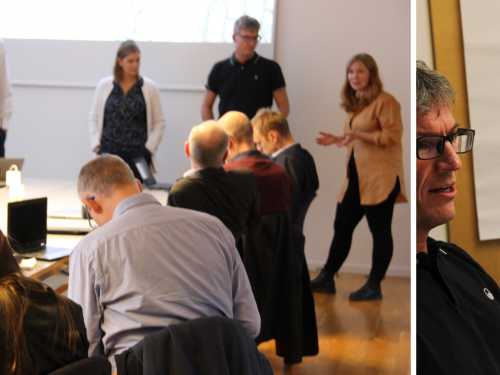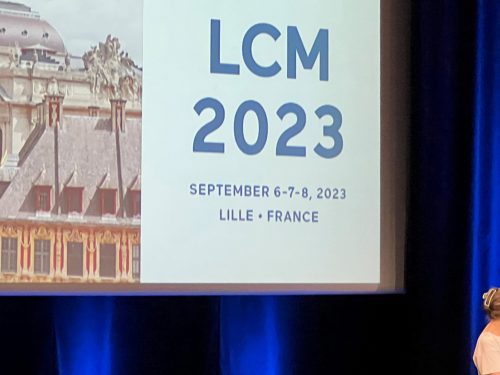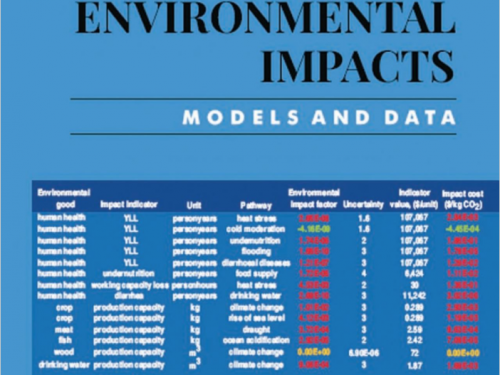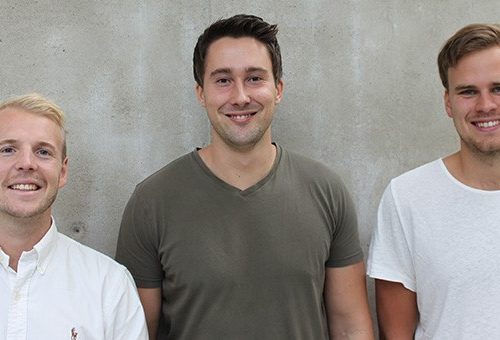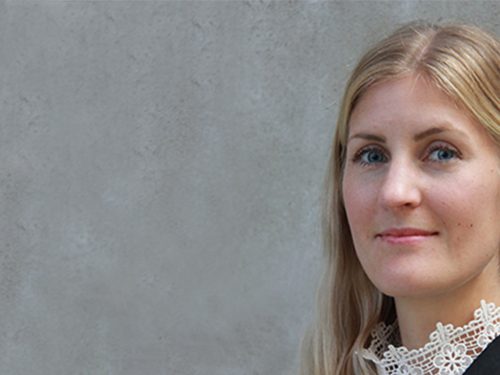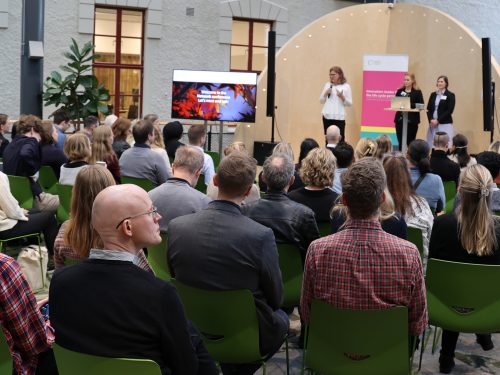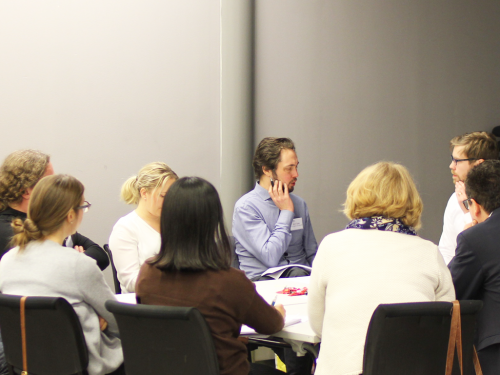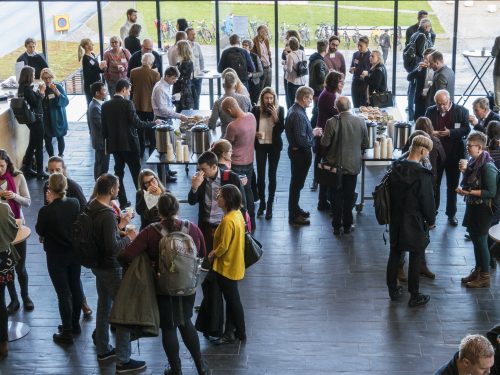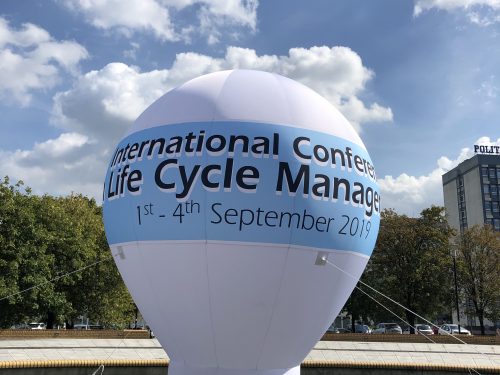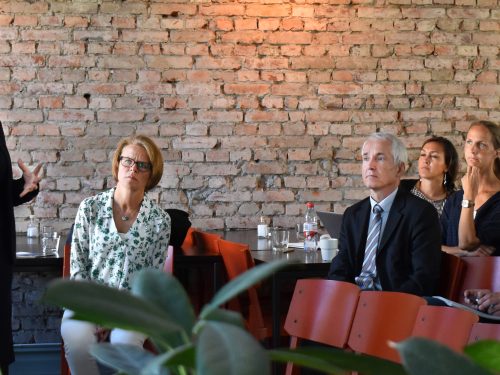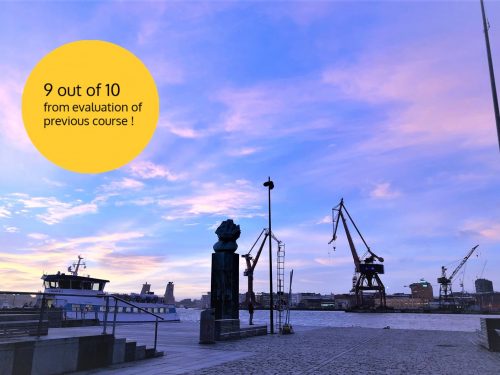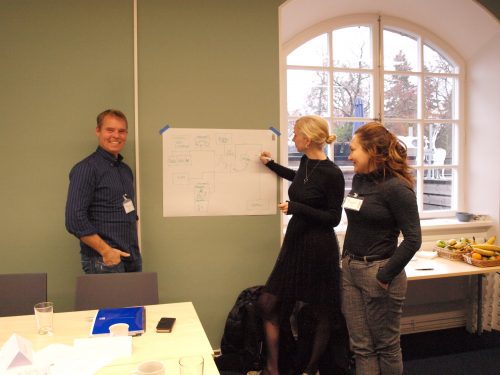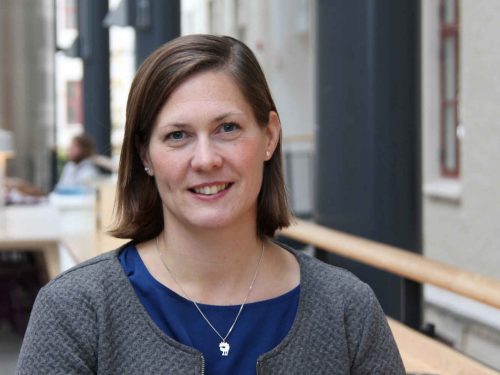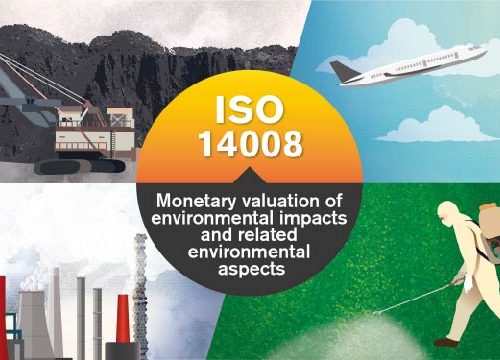Search result (100 hits on "business model")
The pursuit for win-wins has a long history. From an understanding of the relationship between environmental performance and economic activity, the need for environmentally sustainable business models has emerged. The purpose of this project is to grow the knowledge, capacity, and application of Business Model Life Cycle Assessment (BMLCA).
Type Research project
Time period 2023-09-01 - Ongoing
The method for modeling material recycling can have a decisive impact on the environmental assessment of products with a high content of recycled material or material that is recycled after use. How recycling should be modeled in LCA has been discussed since the 90's but no consensus has yet been reached. The project is expected to result in increased competence and in consensus on certain aspects of the modeling of recycling in LCA.
Type Research project
Time period 2018-11-15 - 2020-05-31
Summary The European Commission developed a framework for life cycle assessment (LCA) denoted Product Environmental Footprint (PEF) in collaboration with representatives from the EU Member States, industry, and researchers.
Author Tomas Ekvall, TERRA; Katarina Lorentzon, RISE Research Institutes of Sweden; Elin Einarson Lindvall, RISE Research Institutes of Sweden; Sara Palander, Swedish Life Cycle Center
Network Conference: The role of life cycle thinking in a circular economy
We welcome partners and invited guests to participate in the upcoming network conference arranged by Swedish Life Cycle Center and the project Swedish platform for the life cycle perspective (funded by Swedish Energy Agency) on Wednesday February 7, 2018 in Gothenburg.
Project idea workshop – spin off ideas from the project Modeling of recycling
A meeting will be arranged within Swedish Life Cycle Center together with Tomas Ekvall at Chalmers to discuss and develop project ideas originated from the successful and appreciated project Modeling of Recycling with interested researchers,…
This project is a continuation of the project modelling of recycling that aimed to analyzing and debating how recycling should be modeled in life cycle assessment (LCA) and similar environmental assessments and…
Type Research project
Time period 2020-11-01 - 2021-01-31
Swedish Life Cycle Center provides LCA data in the CPM LCA Database. It all started as a project engaging partners in CPM (former Swedish Life Cycle Center).
Time period 1996-01-01 - 2017-10-31
This is the project report from the project Modeling of recycling. The project aimed at analyzing and debating how recycling should be modeled in life cycle assessment (LCA) and similar environmental assessments, as well as contributing to international harmonization processes such as the international LCA standard and the EU guidelines for Product Environmental Footprint.
Author Tomas Ekvall, Anna Björklund, Gustav Sandin, Kristian Jelse, Jenny Lagergren, Maria Rydberg
Introduction The European Commission launched Environmental Footprint methods to measure and communicate the environmental performance of products (both goods and services) and organizations across their life cycle, from raw material extraction or cultivation…
Type Research project
Time period 2022-11-01 - 2023-01-31
Webinar – Incentives for energy recovery in LCA for plastics
Welcome to a webinar with results from the project “Incentives for energy recovery in LCA for plastics”. Tomas Ekvall, Chalmers University of Technology, will present the project and its results, together with Maja Nellström and Marie Gottfridsson,…
Environmental footprint Expert group meeting – Carbon Footprint of Electric Vehicle Batteries
The European Commission has published a draft delegated act on mandatory calculation and verification of carbon footprint of electric vehicle batteries (Batteries for electric vehicles – carbon footprint methodology) is running a consultation, deadline…
The project Environmental Footprint in Swedish Industry – increased understanding and implementation started in November 2022. The aim of the project has been to enhance awareness among businesses, authorities, and the public sector in Sweden…
Author Maria Rydberg, Anna Wikström and Yulia Liu, Swedish Life Cycle Center, Erika Kloow and Josefin Neuwirth, IVL, Jonas Larsson, SSAB, Torun Hammar and Mats Zackrisson, RISE Research Institutes of Sweden, Jennifer Davis, Felipe Oliveria, Morgana Santos de Lima and Ben Whitaker, Volvo Car Corporation, Babak Kianian and Sofia Poulikidou, Höganäs AB, Lionel Belzons and Lisa Åkerlund, CEVT.
Workshop on Stimulating Innovative and Sustainable Business Decisions
The 10th of October 2016, there will be a workshop in Gothenburg within the project Integration of environment and economy in product development gives opportunity for innovation. The workshop will provide opportunities for discussion, as…
Background Information and market pressure in combination with political instruments will in the long run lead to reduced environmental impact and resource use from production and consumption of goods and services, both nationally and globally.
Time period 2020-11-01 - 2021-11-30
Two-day course in Applied life cycle thinking November 2022 – ONLINE
The life cycle perspective, understanding the environmental impacts of a product or service throughout the value chain, is gaining increased importance in business as well as in public sector and authorities. In this two-day course…
Since 2016, the center has a close collaboration with seven Swedish government agencies. They meet on a regular basis to share experience and build common knowledge in the life cycle field. These authorities play important roles…
Environmental Footprint Expert group – focus on Electricity modelling
Welcome to this meeting in the Environment Footprint Expert group. The aim of the group is to follow, understand and impact the development of the Environmental Footprint (EF) methodologies (PEF and OEF). Exchange information and…
Life Cycle Talks: Is the distinction between attributional and consequential LCA useful? With Tomas Ekvall
Welcome to Life Cycle Talks! A series of talks presenting the research front to keep you up to date with the science and application of the life cycle perspective. Our next guest is Tomas Ekvall,…
Chapter in conference book Designing Sustainable Technologies, Products and Policies, pp 157-161, Springer. (8th International Conference on Life Cycle Management (LCM), September 2017, Luxembourg City.) Find publication here…
Author Sara Palander, Lena Landström
Two-day course in Applied life cycle thinking 2020, Gothenburg – ONLINE
The life cycle perspective, understanding the environmental impacts of a product or service throughout the value chain, is gaining increased importance in business as well as in public sector and authorities. In this two-day course…
Webinar: Environmental and Economic implications of circularity
Content Closing the loop via reuse, refurbishment, and remanufacturing provides promising avenues to lower environmental impact while remaining profitable. But are all products suitable for a (so-called) circular economy and under what circumstance? This webinar…
After twelve years at the Swedish Life Cycle Center, Sara Palander, will leave her position as a Director of the Center. Sara has during her leadership built and managed the Swedish Life Cycle Center’s operations…
Towards sustainable supply chains through a common approach for company strategic work and daily operations. The LIFE TOSCA project has provided the means for companies and industrial sectors to improve their environmental performance by addressing…
Type Research project
Time period 2009-01-01 - 2011-12-31
Author Tomas Ekvall, Anna Björklund, Kristian Jelse, Jenny Lagergren
Background There are many ways to assess and quantify resource efficiency, from simple measures of how much of a particular resource is needed for a particular product to more general measures that…
Type Research project
Time period 2018-11-15 - 2020-10-31
Highlights Current life cycle assessments can incorrectly rank incineration over recycling. In the short term, products sent to incineration displace other waste flows. Investments in incinerator capacity are affected by gate fees and energy sales.
Author Tomas Ekvall (Chalmers and TERRA), Marie Gottfridsson (IVL), Johan Nilsson (IVL), Maja Nellström (IVL), Maria Rydberg (Swedish Life Cycle Center), Tomas Rydberg (IVL)
We are proud to announce that Swedish Life Cycle Center has received funding for a new project from the Swedish Energy Agency, in support of an innovation cluster for the life cycle perspective between 2020…
Conference reflections and report from 9th International Conference on Life Cycle Management (LCM 2019) The 9th International Conference on Life Cycle Management (LCM 2019) took place between 1rd– 4thSeptember 2019 in city of Poznan, Poland.
Methods for environmental footprinting of products and services have been and are being developed all over the world. Two methods to measure environmental performance throughout the lifecycle, the Product Environmental Footprint (PEF) and the Organisation…
Type Expert group
Time period 2014-01-01 - 2022-08-01
The purpose of this project was to develop methods for how large companies can work with energy efficiency that stretches across actors in the value chain.
Type Research project
Time period 2014-12-08 - 2015-06-30
The aim of the project is to accelerate the transition to a sustainable and robust energy system by promoting the application of life cycle thinking.
Type Admin project
Time period 2025-06-01 - Ongoing
Two-day course in Applied life cycle thinking, at Chalmers University of Technology
The life cycle perspective, understanding the environmental impacts of a product or service throughout the value chain, is gaining increased importance in business as well as in public sector and authorities. In this two-day course…
Strategic intelligence meeting: EU policies and its relevance to the circular transition of Swedish industrial companies
The Swedish Life Cycle Center strategic intelligence meeting on EU policies and its relevance to the circular transition of Swedish industrial companies, is organized within the Innovation cluster for the life cycle perspective. This Strategic…
Oral presentation at Indian LCM Conference 2017. …
Author Carl Karheiding, Sara Palander & Anna Wikström (Swedish Life Cycle Center)
Maria will manage and coordinate projects and activities within Swedish Life Cycle Center. With her background from a NGO working with sustainability, small and medium-sized enterprises (SMEs) and academic partners she is a welcome addition…
Accepted abstract/Conference presentation in the 8th International Conference on Life Cycle Management (LCM), September 2017, Luxembourg City.
Author Sara Palander, Anna Wikström, Karl Carheiding




